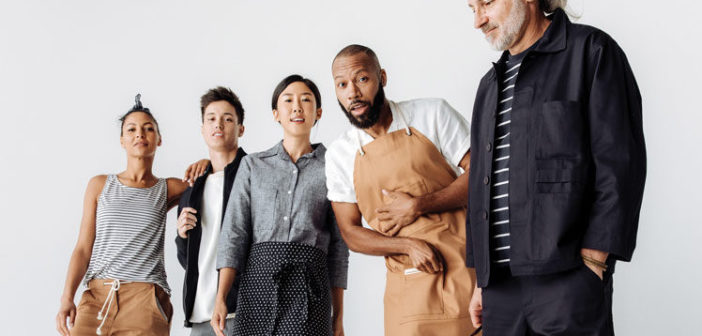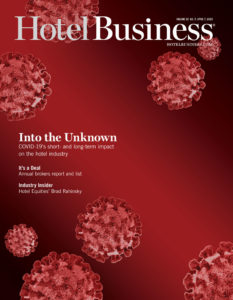LOS ANGELES—With the goal of providing utility without looking or feeling commonplace, Finery is delivering innovative uniform options to the hospitality industry.
“The uniform industry as a whole is a dinosaur that hasn’t evolved much over the last 70 years,” said Greg Sato, founder of Finery, a design and manufacturing studio based here. “We like to say that we’re a fashion brand that happens to do uniforms well.”
According to the founder, Finery was born out of the need to create a uniform that didn’t look or feel like a uniform, yet still performed like one. For Finery, it’s about an elevated expression of the traditional uniform, but one that also reflects its workwear heritage.
“Ultimately, our goal is to not just create a beautiful uniform, but to help hotels tell their story through that uniform,” he said.
Hotels can make the uniforms their own through customization, including custom fabrics, colors, trims, logo treatments, threads, buttons and zippers, just to name a few.
And, if a client still doesn’t find what they’re looking for, Finery starts from the ground up, Sato said, extending the company’s effort to deliver truly customized uniforms, which differ depending on employee and industry.
“For the most part, design and manufacturing considerations are similar across any industry. However, we do need to pay specific attention when designing for beauty, wellness and spa because of the products that are used. In these cases, we source fabrics that are more resistant to oil-based products,” Sato said.
Finery’s roots lie in restaurants, but the company eventually expanded to hospitality and grew to multi-property clients both nationally and internationally. Finery then spread its wings to other industries like wellness, beauty, coworking spaces and tech, but the company has never forgotten its beginnings.
“Our goal has always been to grow our business to a point where we can work on a variety of projects of all sizes, industries and geographies. But restaurants and hotels will always hold a special place in our hearts as that is where we started this journey,” Sato said.
Recently, Finery shifted its infrastructure to accommodate large-scale multi-property brands with bigger footprints in the QSR and fast-casual space.
Finery provides uniforms for both front-of-house and back-of-house employees, and Sato noted that Finery considers all positions equal as employees are an effective vehicle for delivering the brand narrative.
“Staff members are the front line of your guest experience; the clothes they present themselves in should seamlessly integrate into all of the other meticulously designed elements of the hotel,” Sato said. “If employees don’t look the part, that is a disconnect from the rest of the guest experience. More than ever, today’s travelers are hyper-aware of every detail and make choices based on unique experiences they can share. We’re living in an experience vs. goods economy, and hotels need to be vigilant in executing consistent storytelling throughout every guest touchpoint. Uniforms are an incredibly important part of that story.”
According to Sato, both big brands and boutique properties have similar goals when it comes to telling their stories; however, each has a different approach to regionality. Boutiques, Sato said, tend to place a greater emphasis on layering over the brand with the personality of their specific neighborhood, where brands do that to a lesser extent, instead focusing on their global brand attributes.
“We enjoy working with these types of clients because they have thoughtfully considered every detail, which allows us to more concisely express that sentiment into the uniform design,” he said.
Design is at the forefront for Finery, a company that recognizes that fashion and functionality don’t always meet.
“Uniforms look like uniforms. There really hasn’t been any major shift in the way uniforms are approached for the hospitality industry in decades. Our aim is to disrupt a staid industry and give hotels a better option when dressing their staff,” Sato said.
The proof is in the details for Finery, while also considering quality, comfort, durability and sustainability, which, according to the founder, will be key in moving uniforms to a place where they are no longer a four-letter word.
“The biggest trend we are seeing and addressing is the move toward a more sustainable model of doing business,” he said. “Finery cares deeply about the impact our business has on the environment. Every decision made is viewed through the lens of the entire product life cycle. We are in a constant process of critically examining and improving the footprint we are leaving upon this earth. As a small studio, we are trying to make a big impact.” HB



